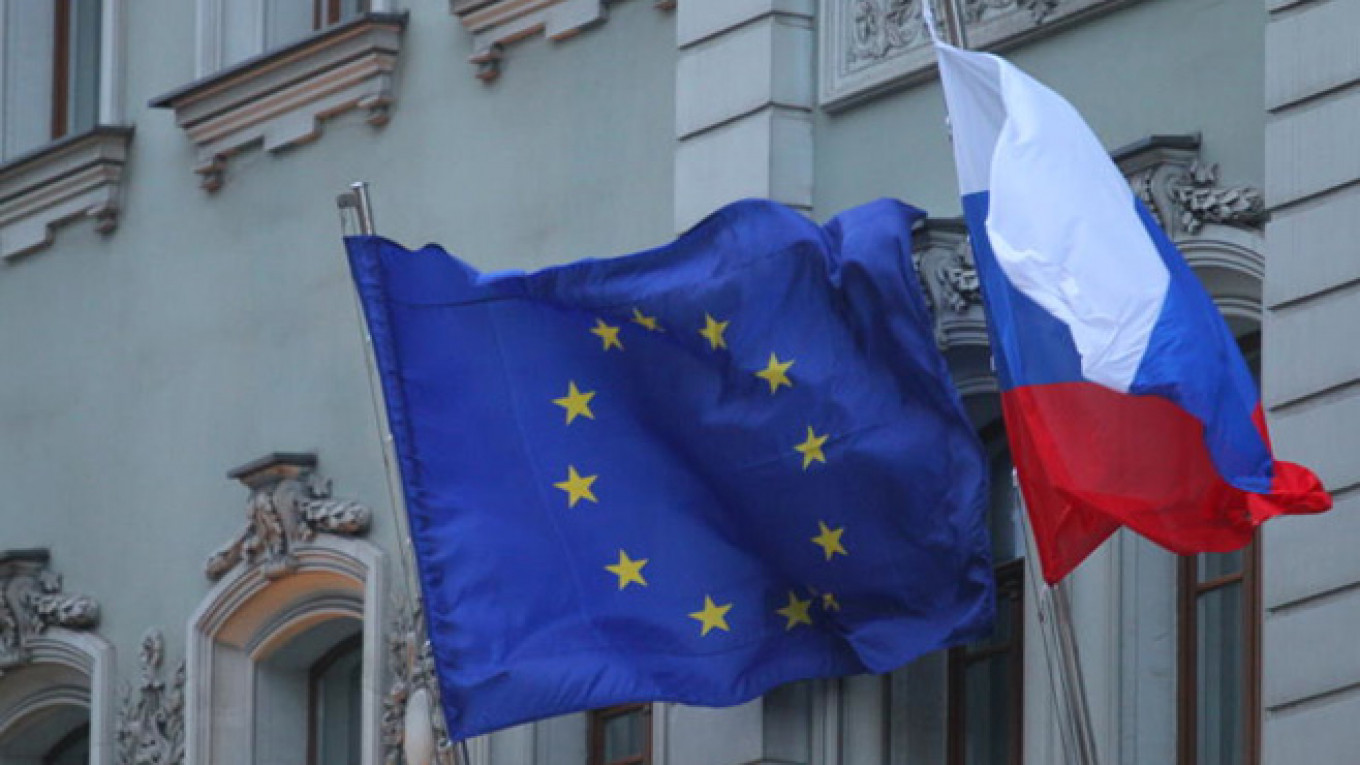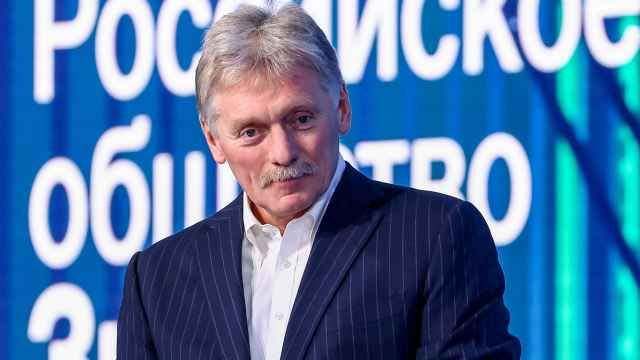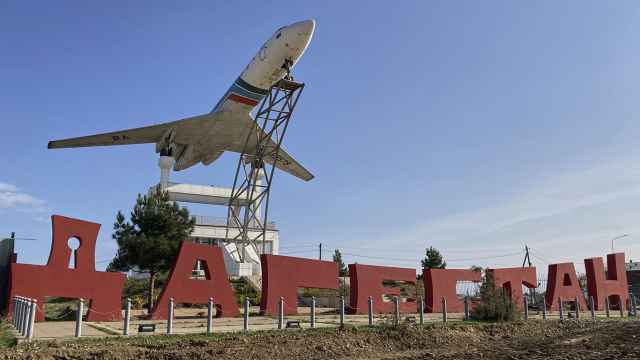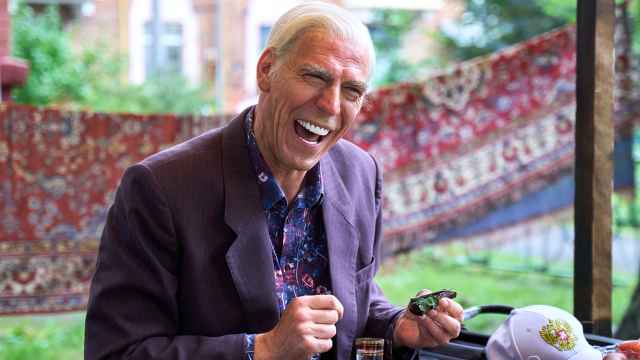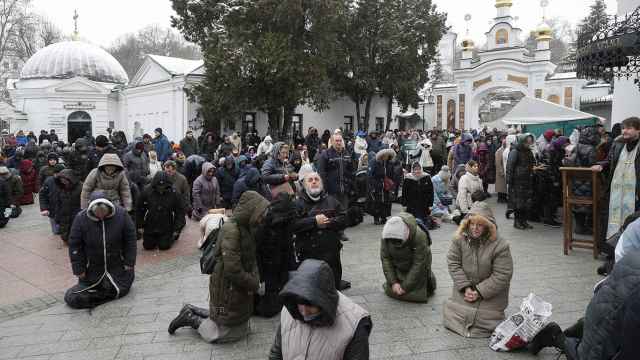The interest in working with Russia could not be lower in the West. There is a view that there is no hope now, or even in the longer term, for constructive cooperation. Being a Russia expert or even proposing dialogue makes one an outcast — both in Russia and in the West.
However, there are rays of hope: I found in informal one-on-one meetings with a dozen senior members of the Russian government, the Presidential Administration, the Central Bank, the State Duma, the Federation Council, and with EU Commission President Jean-Claude Juncker, that support exists for the idea of returning to the road map of "four common spaces" between the European Union and Russia.
These spaces are the following: free movement of people; free movement of goods; common laws and security, including a common highest court; and common educational standards.
Such a cooperative approach was the core of German "Ostpolitik," which led to rapprochement between West Germany and the Soviet Union and ultimately between East and West in spite of a disagreement over German unification.
This provided an environment of trust in which the bloodless revolutions in Eastern Europe became possible. Working together toward shared goals is key to help resolve any deadlock.
Juncker has always had good relations with President Vladimir Putin. He was the president of the Council of Europe when the road map for the four common spaces between the EU and Russia was first negotiated in 2005.
Moreover, the German government has been very supportive of an amicable agreement between Russia and Ukraine.
German Chancellor Angela Merkel and Foreign Minister Frank-Walter Steinmeier requested that Ukrainian President Petro Poroshenko undertake important constitutional reforms, including veto rights against laws that would eliminate Russian as an official language — and against NATO membership for the eastern provinces, addressing key Russian concerns.
Clearly, the West will not accept the annexation of Crimea without a negotiated agreement and a price to be paid by Russia. This may be seen as offensive to Russians who consider Crimea theirs, but it is clearly a much lower price to pay than the destruction of the Russian economy under the weight of sanctions and heightened distrust between Russia and the West.
There is no future for the Russian economy in isolation, and cooperation with other developing countries like China, South Africa, India and Brazil will not give Russia the know-how it needs to modernize. While the EU and the U.S. each registered about 150,000 patents each at the European patent office in Munich over the past decade, Russia registered about 500.
To move forward on Ukraine, UN Blue Helmets of Kazakh nationality should be invited to disarm the parties in the conflict zone in eastern Ukraine, enforcing both the internal demarcation line and Ukraine's external borders. Russia could also set a key signal by asking the same UN Blue Helmets to monitor demarcation lines and Crimea until a negotiated settlement is reached.
Second, Russia and the EU should work swiftly on a free-trade agreement between the EU and the Eurasian Economic Union, also inviting Ukraine in, ensuring that normal economic relations between Russia and Ukraine can be restored.
Following both world wars and the Holocaust, the world saw Germany for decades with great skepticism. It was not until Germany hosted the football World Cup in 2006 that many people around the world changed their view of the country.
Germans, it turned out, could be not just efficient, but also warm, friendly and fun. Russia, having freed Europe from fascism, is today seen as the incarnation of evil and as a completely unreliable partner. There are calls to hold the 2018 Word Cup in a different country.
Instead, let us use the World Cup in Russia as a clear target by which we must change the situation and therefore Russia's image once and for all. This year, the four common spaces with the EU must be agreed.
In 2016, a negotiated settlement on Crimea needs to be agreed and implemented. From 2017, EU and Russian citizens should travel freely between Russia and the EU, not least to see the various football games in 2018. Student exchanges, city partnerships and high-speed trains should be funded.
Newly made friends could come over to see each other for a weekend trip without visas or border controls or great cost. Criminals would be pursued across all of the common space.
Having started to implement the four common spaces from 2017, Russia could regain the trust needed to attract people to see for themselves at the World Cup 2018. It could present itself in its true light of highly intelligent, creative, cultural, welcoming, kind and loving people to the world.
Even though small in terms of gross domestic product and population in the world today, Russia can be a key part of Europe and could continue to make major contributions to the world.
An EU-Eurasian free trade zone would be a global player to reckon with, with some 7 percent of the world's population and a third of world GDP. Let us thus make sure we all work together toward this goal.
Jochen Wermuth is a founding partner and chief investment officer at Wermuth Asset Management GmbH.
A Message from The Moscow Times:
Dear readers,
We are facing unprecedented challenges. Russia's Prosecutor General's Office has designated The Moscow Times as an "undesirable" organization, criminalizing our work and putting our staff at risk of prosecution. This follows our earlier unjust labeling as a "foreign agent."
These actions are direct attempts to silence independent journalism in Russia. The authorities claim our work "discredits the decisions of the Russian leadership." We see things differently: we strive to provide accurate, unbiased reporting on Russia.
We, the journalists of The Moscow Times, refuse to be silenced. But to continue our work, we need your help.
Your support, no matter how small, makes a world of difference. If you can, please support us monthly starting from just $2. It's quick to set up, and every contribution makes a significant impact.
By supporting The Moscow Times, you're defending open, independent journalism in the face of repression. Thank you for standing with us.
Remind me later.


